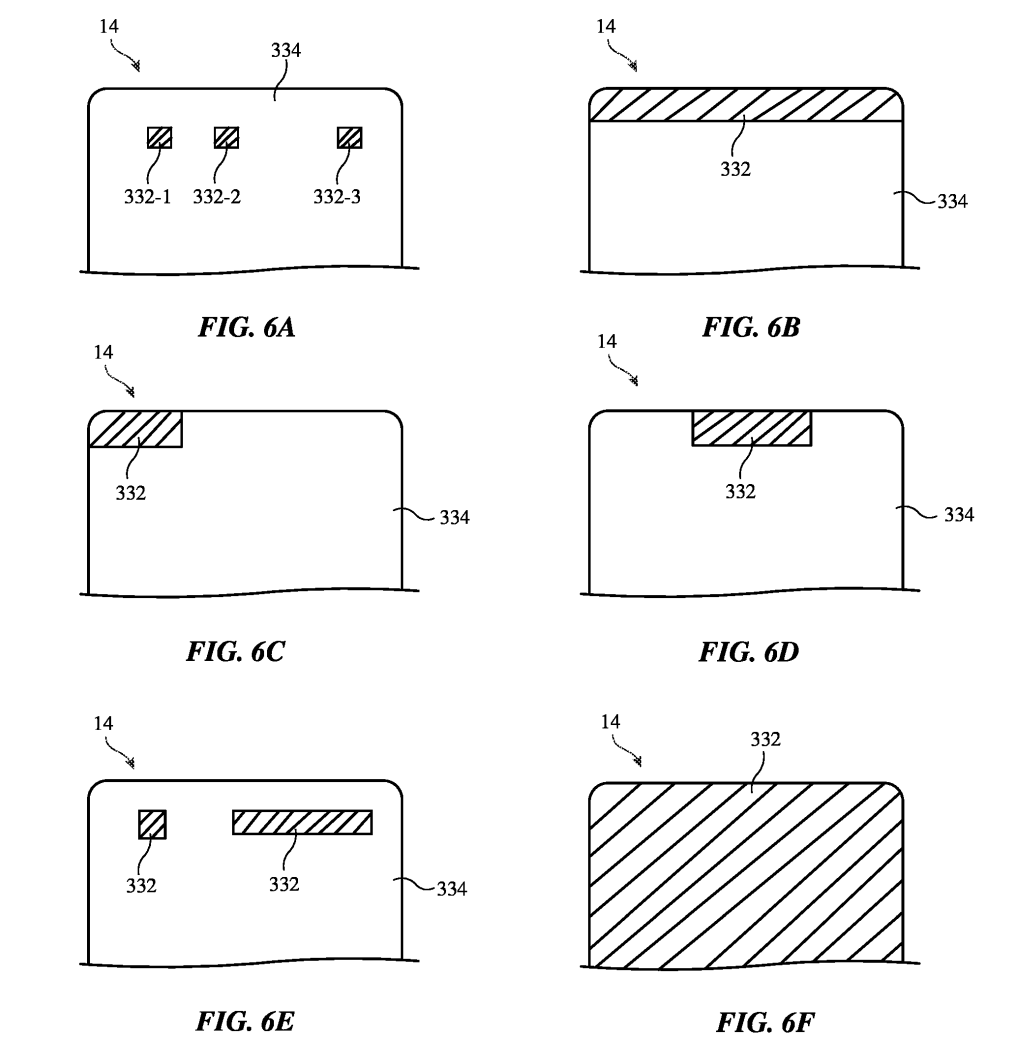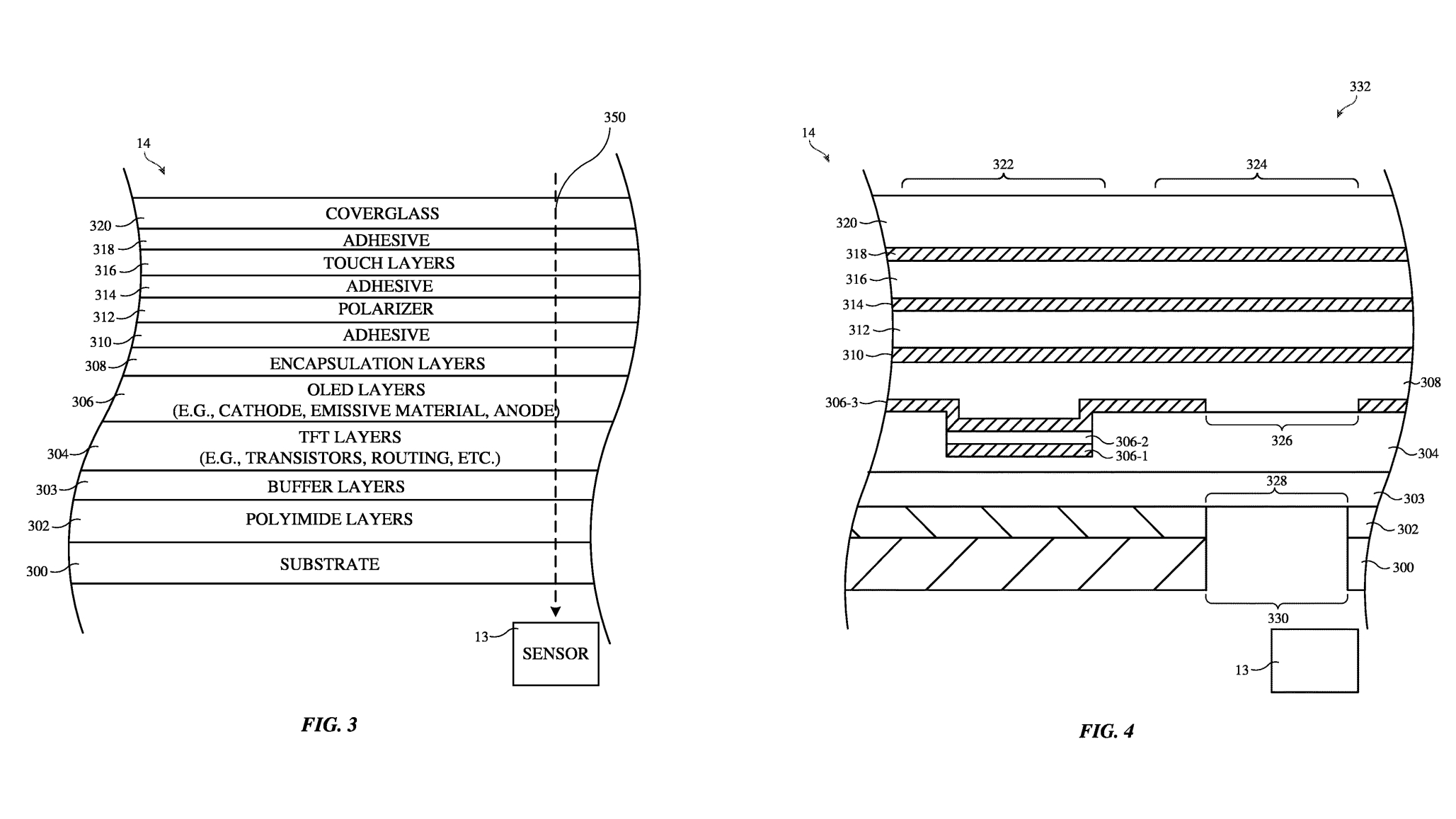Apple just landed a patent that could kill the iPhone notch for good — here’s how
The camera notch may soon be a thing of the past

That camera notch you hate is about to go out of style, if Apple's latest patent for displays with transparent openings actually ends up manifesting in future iPhones and MacBooks.
This could be huge for folks who can't stand the sight of that damnable notch or the new Dynamic Island, because this patent lays out ways to embed a camera beneath an electronic display without compromising either image quality on the display or the quality of images and video captured by the camera.
The patent itself (Patent No. 11823620, brought to our attention by Patently Apple) details how an electronic device with a display could be designed with select "non-pixel regions" (aka "transparent windows in the display") that allow light to pass through the display and hit the embedded optical sensor.

There's a lot of technical detail in the patent about how this could be accomplished, and much of it boils down to moving elements of the display around or eliminating them in select regions to allow more light to pass through the display and hit the camera beneath it.
Apple also outlines methods of designing and implementing "uniformity compensation circuitry" that could help maintain image quality and brightness over regions of the display where pixels have been removed to allow light through.
What's immediately intriguing about this patent is that while it appears aimed at eliminating the notch which contains the camera array on modern iPhones and MacBooks, it isn't limited to those devices.

Like many patents, this one broadly claims this method for building transparent windows in displays could be applied to all sorts of electronic devices with screens, including laptops, tablets, smartphones, wristwatches, gaming devices or devices with "the shape of a pair of eyeglasses" or "a housing having a helmet shape" — and while Apple is likely just covering its bases here, it's hard not to read "helmet shape" and wonder how this patent might be applied in the design of future Apple Vision Pro headsets.
Sign up to get the BEST of Tom's Guide direct to your inbox.
Get instant access to breaking news, the hottest reviews, great deals and helpful tips.
But that's pure speculation, and it's hard to look at the details of the patent and see how they might apply to many modern Apple devices besides iPhones and MacBooks.
Perhaps we might one day see an Apple Watch with an embedded camera beneath the display, but I'm not holding my breath.
More from Tom's Guide

Alex Wawro is a lifelong tech and games enthusiast with more than a decade of experience covering both for outlets like Game Developer, Black Hat, and PC World magazine. A lifelong PC builder, he currently serves as a senior editor at Tom's Guide covering all things computing, from laptops and desktops to keyboards and mice.
